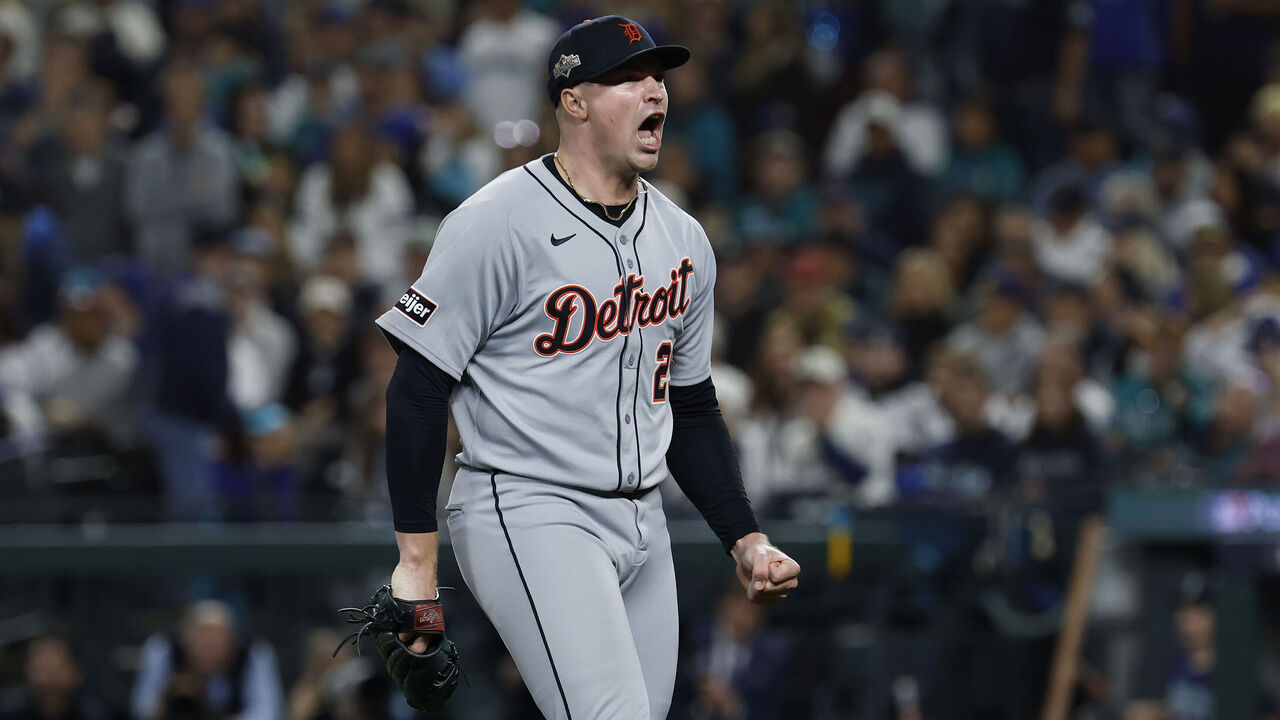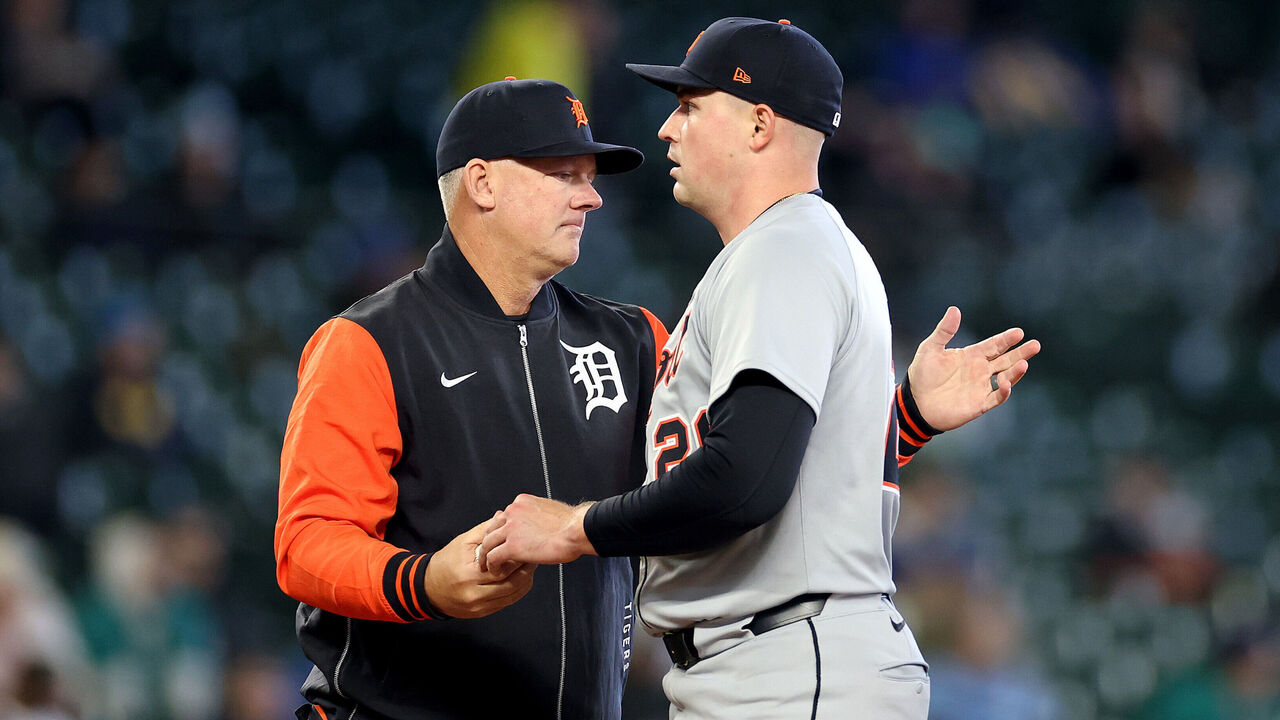Should the Tigers trade Tarik Skubal?
Reigning two-time AL Cy Young winner Tarik Skubal is set to enter his final season under team control before reaching free agency. The Detroit Tigers have said they would love to sign the left-hander long term, but there's reportedly a significant gap between the two sides. Skubal is expected to set the new record for a pitcher when he signs his next deal. With the clock ticking on Skubal's free agency, our editors Simon Sharkey-Gotlieb and Brandon Wile debate whether the Tigers should trade their ace this winter.

No: Why are we even having this conversation? The very thought of trading the AL's best pitcher at the peak of his powers would be silly for any team, but especially for Detroit.
The Tigers recently emerged from a decade-long rebuild that netted the franchise a pair of first overall picks. The players they chose with those picks, Casey Mize and Spencer Torkelson, turned into solid contributors. Yet it's Skubal, an unheralded ninth-round selection out of Seattle University in 2018, who's become the homegrown face of the franchise.
Skubal's two Cy Young Awards over the last two seasons don't begin to tell the story. The 28-year-old has transformed Detroit back into a baseball town, leading the Tigers to consecutive playoff berths. The team hasn't advanced beyond the division series, but Skubal's performed brilliantly on the biggest stage, putting up a 2.04 ERA over his six postseason starts.
So why would you give up a guy like this? Even if the Tigers traded Skubal for a king's ransom that kept them in contention, the mere act of dealing him away would send a terrible message to the players left behind, the fan base, and even star manager A.J. Hinch. It would be unfathomable, and it would take the Tigers out of the running for any big-name free agents.
And it's not like the Tigers can't afford to re-sign Skubal, even though they reportedly lowballed him last winter. Detroit routinely fielded top-five payrolls in the 2010s when the team's star-studded rosters were regularly in the postseason. Though Max Scherzer walked away, the Tigers spent big at the time to ensure that Justin Verlander and Miguel Cabrera stayed in town and even landed Prince Fielder on a nine-year deal in 2012. Owner Chris Ilitch can meet Skubal's price if he wants to.
The Tigers are a historic franchise with a track record of spending and a talented roster that plays in a very winnable division. Keeping Skubal would ensure a franchise icon stays put, help them potentially own the AL Central for the next half-decade, and send a message to other free agents that they're ready and able to spend on a winner. This is a no-brainer. Skubal should be wearing the Olde English D for as long as possible. - Sharkey-Gotlieb

Yes: In a perfect world, Skubal signs an extension and is a Tiger for life. But it doesn't appear that it's going to play out that way. Detroit president of baseball operations Scott Harris must have a pretty good idea of what it will take to extend Skubal, and if the Tigers' front office isn't willing to make a competitive offer, it's best to maximize the return for their ace rather than risk losing him for nothing.
Even rostering Skubal going into the season and maybe flipping him at the deadline is too risky. Not only is there a real threat of injury, but there's no way Skubal's value will be any higher than it is right now.
Skubal is arguably the heart and soul of this Tigers team. He's their best pitcher, and he's been the key cog in Detroit reaching the postseason two years in a row. Trading a player of that ilk isn't easy, and the front office would have to land a significant package in order to justify the move to the fan base - not to mention the clubhouse.
The Tigers haven't really spent big since Mike Ilitch's passing. Though they operated with their highest payroll in 2025 in eight years ($145 million), that's not close to the $200-million payrolls they carried in 2016 and 2017. Instead, the club focused on drafting and developing. Now the organization has a solid nucleus in place and a lot of payroll flexibility. The franchise could afford to drop significant money on Skubal, but the team might be better off selling high and then spreading that money around to address the numerous holes on the roster. This would, in theory, give the club a better shot at extending its current competitive window.
Detroit possesses the No. 6-ranked farm system according to MLB.com, but it's heavy on position players at the top end. Trading Skubal for a package of young and controllable pitchers makes a lot of sense. Harris could also reinvest the roughly $18 million Skubal is set to earn in arbitration this winter to sign a free-agent starter.
Skubal should have a strong market - even on an expiring deal - as teams that want to sign him next winter will also want a full season to sell him on their club.
It's not a perfect example, but the San Diego Padres were able to trade Juan Soto - in the final year of his deal - and Trent Grisham to the New York Yankees for Michael King, Drew Thorpe, Jhony Brito, Randy Vásquez, and Kyle Higashioka. The Padres then packaged Thorpe in another deal to acquire Dylan Cease from the Chicago White Sox. The Tigers have already seen that Skubal can only take them so far in the postseason, and they need more star power and depth to take the next step.
We've seen too many mid- to smaller-market teams mishandle their assets. Trading Skubal would hurt in the short term, but if the Tigers are convinced he's leaving next winter regardless, capitalizing on his trade market is a must in order to extend the club's competitive window. Just look at how the Angels mishandled Shohei Ohtani's final year of free agency and imagine how different that organization might look now if it had traded its greatest asset instead of letting him walk for a compensation draft pick. If the Tigers aren't going to pay Skubal, now is the time to pull the trigger on a trade. - Wile
HEADLINES
- U.S. shows offensive muscle in 15-1 win over Giants before WBC
- Profar suspended 162 games after 2nd positive PED test, out of WBC
- Report: Phillies' Rojas fails PED test, won't play in WBC for Dominicans
- World Baseball Classic odds: Who will challenge Team USA?
- World Baseball Classic preview: Everything you need to know